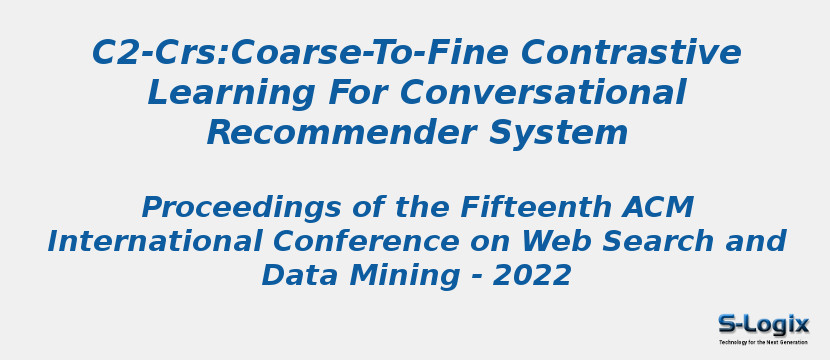Research Area: Machine Learning
Conversational recommender systems (CRS) aim to recommend suitable items to users through natural language conversations. For developing effective CRSs, a major technical issue is how to accurately infer user preference from very limited conversation context. To address issue, a promising solution is to incorporate external data for enriching the context information. However, prior studies mainly focus on designing fusion models tailored for some specific type of external data, which is not general to model and utilize multi-type external data. To effectively leverage multi-type external data, we propose a novel coarse-to-fine contrastive learning framework to improve data semantic fusion for CRS. In our approach, we first extract and represent multi-grained semantic units from different data signals, and then align the associated multi-type semantic units in a coarse-to-fine way. To implement this framework, we design both coarse-grained and fine-grained procedures for modeling user preference, where the former focuses on more general, coarse-grained semantic fusion and the latter focuses on more specific, fine-grained semantic fusion. Such an approach can be extended to incorporate more kinds of external data. Extensive experiments on two public CRS datasets have demonstrated the effectiveness of our approach in both recommendation and conversation tasks.
Keywords:
Coarse-To-Fine Contrastive Learning
Conversational Recommender System
Deep Learning
Machine Learning
Author(s) Name: Yuanhang Zhou, Kun Zhou, Wayne Xin Zhao, Cheng Wang, Peng Jiang, He Hu
Journal name: Computer Science
Conferrence name:
Publisher name: arXiv:2201.02732
DOI: 10.48550/arXiv.2201.02732
Volume Information:
Paper Link: https://arxiv.org/abs/2201.02732
